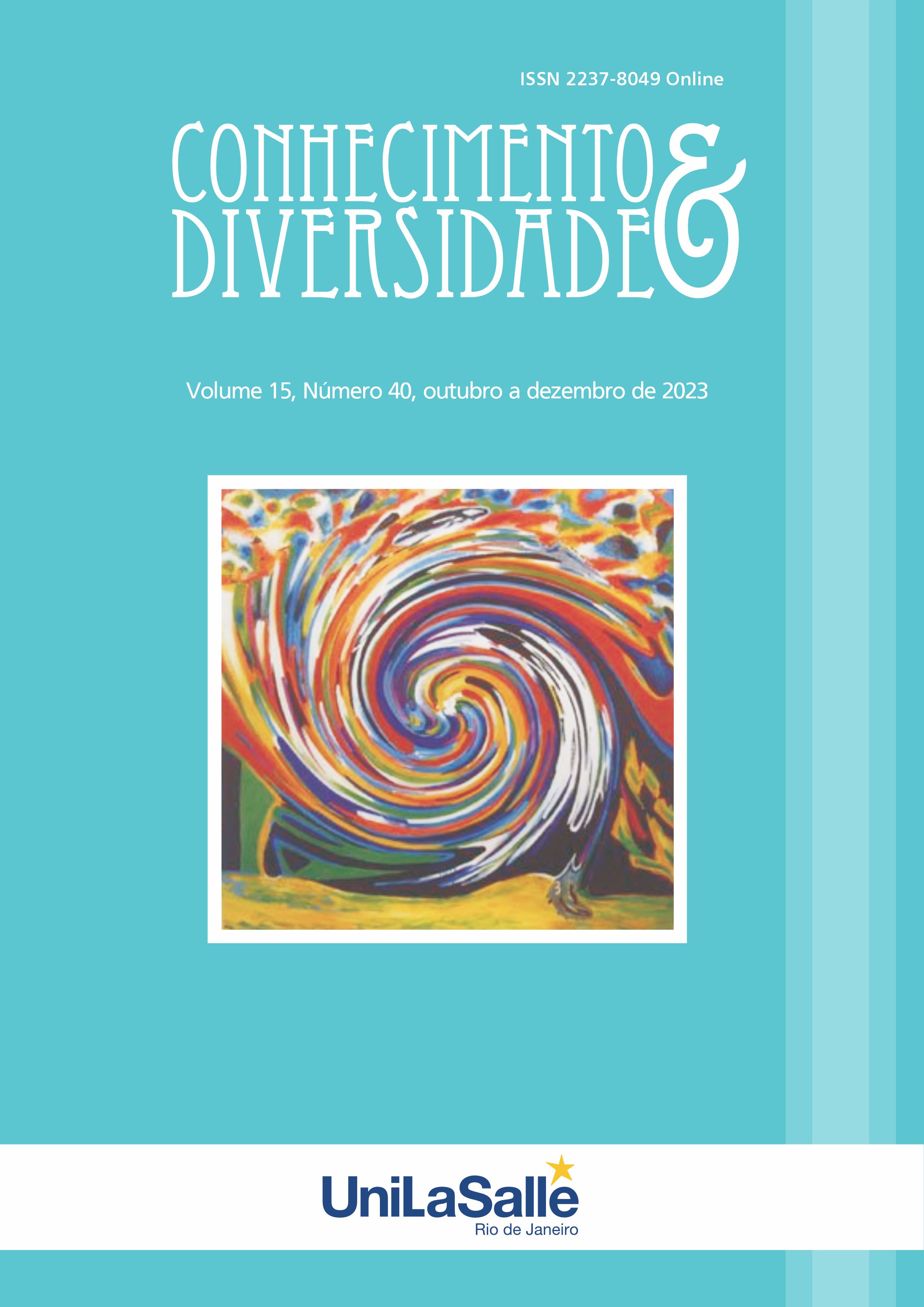EXAMINING SUSTAINABLE DEVELOPMENT GOALS FOR CURRENT SITUATION OF INCLUSIVE EDUCATION POLICIES AND PRACTICES IN KAZAKHSTAN UNIVERSITIES
DOI:
https://doi.org/10.18316/rcd.v15i40.11235Keywords:
inclusive education, policies, sustainable development goals, qualityAbstract
Sustainable Development Goals become guide for future of education. For the quality of education, countries try to reshape educational policies and strategies. Especially inclusiveness plays a great role to achieve quality of education for the future of education. This research aims to evaluate current situation of inclusive education in Kazakhstan Universities in order to foster existing practices and policies. In this respect, survey and semi structured interview were conducted to determine current situations to 200 participants. It is revealed that definition of inclusive education can be categorized as giving equal education rights, reintegrating students with disabilities into society, inclusion of people with disabilities in the social process, diversity and tolerance, right of access to education. The majority of the research participants expressed a positive opinion towards inclusion. Challenges in inclusive education are infrastructure issues, lack of awareness, teacher lack of knowledge, insufficient training programs and lack of community awareness.
References
Alnahdi, G. H., Saloviita, T., & Elhadi, A. (2019). Inclusive education in Saudi Arabia and Finland: Pre-service teachers' attitudes. Support for learning, 34(1), 71-85.
Al-Shammari, Z. & Faulkner, P. E. and Forlin, C. (2019). Theories-based Inclusive Education Practices (June 17, 2019). Education Quarterly Reviews,.2(2).
Ari, R., Altinay, Z., Altinay, F., Dagli, G., Ari, E. (2022). Sustainable Management and Policies: The Roles of Stakeholders in the Practice of Inclusive Education in Digital Transformation. Electronics , 11, 585. https://doi.org/10.3390/electronics11040585
Buli-Holmberg, J., & Jeyaprathaban. S.. (2016). Effective Practice in Inclusive and Special Needs Education. International Journal of Special Education 31 (1): 119–134.
Chris Forlin & Dianne Chambers (2011): Teacher preparation for inclusiveeducation: increasing knowledge but raising concerns, Asia-Pacific Journal of Teacher Education, 39:1, 17-32.
Clark, C., Dyson, A., & Millward, A. (2018). Towards inclusive schools? London: Routledge.
Donnie Adams, Ahmed Mohamed, Visal Moosa, Mariyam Shareefa. (2021). Teachers’ readiness for inclusive education in a developing country: fantasy or possibility? Educational Studies 0:0, pages 1-18. https://doi.org/10.1080/03055698.2021.1908882
İra, N. ve Gör, D. (2018) Opinions of faculty of education faculty members on inclusive education. Turkish International Journal of Special Education and Guidance & Counseling, 7(2), 29-38.
Karakaya, İ. (2009). Bilimsel araştırma yöntemleri. A. Tanrıöğen, Bilimsel araştırma yöntemleri. Ankara: Anı Yayıncılık.
Kırılmaz, C. M. (2019). Investigation of Classroom Teachers' Realization of Inclusive Education for Asylum Seekers. (Unpublished Master Thesis). Bulent Ecevit University Institute of Social Sciences, Zonguldak.
Lindner, K., & Schwab, S. (2020). Differentiation and individualization in inclusive education: A systematic review and narrative synthesis. International Journal of Inclusive Education, 1–21. https://doi.org/10.1080/13603116.2020.1813450
Magnússon, G., Göransson, K., & Lindqvist, G. (2019). Contextualizing inclusive education in educational policy: The case of Sweden. Nordic Journal of Studies in Educational Policy, 5(2), 67–77. https://doi.org/10.1080/20020317.2019.1586512
Mirici, I.H. (2022). Inclusive Educational Practices in Turkey During the Period of COVID-19. In: Meda, L., Chitiyo, J. (eds) Inclusive Pedagogical Practices Amidst a Global Pandemic. Inclusive Learning and Educational Equity, 7. Springer, Cham. https://doi.org/10.1007/978-3-031-10642-2_17
Moberg, S., Muta, E., Korenaga, K., Kuorelahti, M., & Savolainen, H. (2020). Struggling for inclusive education in Japan and Finland: Teachers’ attitudes towards inclusive education. European Journal of Special Needs Education, 35(1), 100–114. https://doi.org/10.1080/08856257.2019.1615800
Majoko, T. (2018). Inclusion of children with autism spectrum disorders in mainstream primary school classrooms: Zimbabwean teachers’ experiences. Internatıonal Journal of Specıal Education, 33(3), 630-656.
Naukkarinen, J. & Jouhkimo, L. Toward Integrated and Inclusive Education for Sustainability with School–University Cooperation. Sustainability 2021, 13, 12486.
Nilholm, C. (2021). Research about inclusive education in 2020–How can we improve our theories in order to change practice? European Journal of Special Needs Education, 36(3), 358–370. https://doi.org/10.1080/08856257.2020.1754547
OECD (2010). From Inclusion and Equity in Education to Social and Economic Prosperity. Retrieved from; http://www.oecd.org/education/school/OECD%20Symposium%20on%20Inclusion%20and%20Equity%20in%20Education.pdf
Öztürk, M. ve Palancı M. (2015). Demokrasi ve _nsan Hakları Egitimi: Kavramsal Çerçeve. Öztürk, M., Saydam, A. & Palancı, M. (eds.) Demokrasi, yurttaslık ve insan hakları egitimi: ilkokul 4. sınıf için etkinlik örnekleri. Orka: Kayseri.
Rajeswari, K. (2017). Barriers to access and success in execution of inclusive education. International Journal of Multidisciplinary Educational Research, 6, 11(2), 200-213.
Sudakova, N. (2018). Philosophical reflection of inclusive education being a part of the Russian socio-cultural space: on the way to inclusive culture. IJAEDU- International E-Journal of Advances in Education, 4 (11), 160-167.
UNESCO (2016). Incheon Declaration and Framework for Action for the implementation of Sustainable Development Goal 4. Retrieved from; http://uis.unesco.org/en/files/education-2030-incheon-framework-action-implementation-sdg4-2016-enpdf-1
UESCO (2020). Artificial Intelligence and Inclusion. Concept Note, Paris.
UESCO (2019). Artificial Intelligence in Education: Challenges and Opportunities for Sustainable Development. Working Papers on Eduation Policy, Paris.
Nye, B.D. (2015). Intelligent Tutoring Systems by and for the Developing World: a review of trends and approaches for Educational Technology in a Global Context. International Journal of Artificial Intelligence in Education, Volume 25, Issue 2, pp. 177-203.
Schittek Janda, M., Mattheos, N., C. Lyon, H & Attström, R. (2001). Computer assisted learning. A Review. European journal of dental education: official journal of the Association for Dental Education in Europe. DOI: 5. 93-100. 10.1034/j.1600-0579.200
Akinwalere, S. N. and Ivanov, V. (2022) “Artificial Intelligence in Higher Education: Challenges and Opportunities”, Border Crossing. London, UK, 12(1), pp. 1–15. doi: 10.33182/bc.v12i1.2015.
Downloads
Published
Issue
Section
License
Copyright (c) 2023 Zehra Altinay, Gainiya Tazhina, Kamilla Tairova, Gokmen Dagli, Ainur Kenebayeva

This work is licensed under a Creative Commons Attribution 4.0 International License.
As recommended by the Public Knowledge Project, RCD adopts for its articles a CREATIVE COMMONS Attribution CC BY 4.0 license.
This license allows others to distribute, remix, adapt and build upon your work, even commercially, as long as they credit you for the original creation.
This is the most appropriate license offered.
Recommended for maximum dissemination and use of licensed materials.



